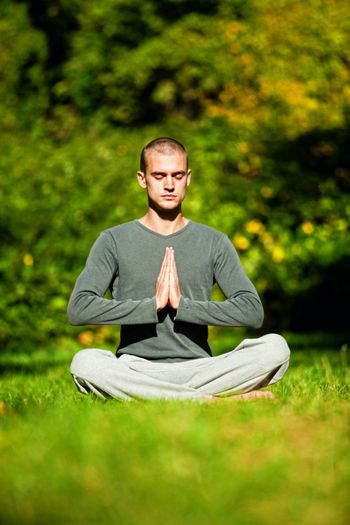Recent data suggests that over half of the people in this country feel stress. And a lot of it!
Sadly, when many people feel stressed, they tend to lean into bad habits, like drinking, smoking and eating junk food. What they should be doing is more yoga, meditation, and mindfulness.
More and more studies are now proving yoga can help people deal with stress and anxiety. But sadly, not enough people realize the benefits of yoga. And that’s why September has officially become National Yoga Awareness Month.
Besides helping to relieve stress and anxiety, yoga also offers some other pretty terrific benefits:

